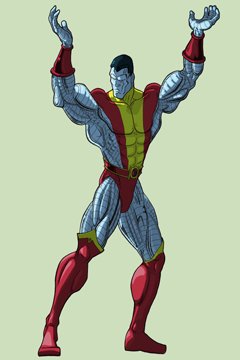Alright, so maybe my teacher didn't exactly tell me all of these (I wasn't raised in the States), but this book is chalk-full of interesting "Lies" that are taught in American text books. While I cannot confirm that the books mentioned are being used in American schools, I can say this; if they are, god help the poor buggers.
Canadian texts are not always right, but they sure do go out of their way to show many sides of the same picture (well, at least from what I can remember. I'll have to glance at some when I go home next time). here is an excerpt from the book to tweak your interest.
Teachers have held up Helen Keller, the blind and deaf girl who overcame her physical handicaps, as an inspiration to generations of schoolchildren. Every fifth-grader knows the scene in which Anne Sullivan spells water into young Helen's hand at the pump. At least a dozen movies and filmstrips have been made on Keller's life. Each yields its version of the same clichE. A McGraw-Hill educational film concludes: "The gift of Helen Keller and Anne Sullivan to the world is to constantly remind us of the wonder of the world around us and how much we owe those who taught us what it means, for there is no person that is unworthy or incapable of being helped, and the greatest service any person can make us is to help another reach true potential."
To draw such a bland maxim from the life of Helen Keller, historians and filmmakers have disregarded her actual biography and left out the lessons she specifically asked us to learn from it. Keller, who struggled so valiantly to learn to speak, has been made mute by history. The result is that we really don't know much about her.
Over the past ten years, I have asked dozens of college students who Helen Keller was and what she did. They all know that she was a blind and deaf girl. Most of them know that she was befriended by a teacher, Anne Sullivan, and learned to read and write and even to speak. Some students can recall rather minute details of Keller's early life: that she lived in Alabama, that she was unruly and without manners before Sullivan came along, and so forth. A few know that Keller graduated from college. But about what happened next, about the whole of her adult life, they are ignorant. A few students venture that Keller became a "public figure" or a "humanitarian," perhaps on behalf of the blind or deaf. "She wrote, didn't she?" or "she spoke" — conjectures without content. Keller, who was born in 1880, graduated from Radcliffe in 1904 and died in 1968. To ignore the sixty-four years of her adult life or to encapsulate them with the single word humanitarian is to lie by omission.
The truth is that Helen Keller was a radical socialist. She joined the Socialist party of Massachusetts in 1909. She had become a social radical even before she graduated from Radcliffe, and not, she emphasized, because of any teachings available there. After the Russian Revolution, she sang the praises of the new communist nation: "In the East a new star is risen! With pain and anguish the old order has given birth to the new, and behold in the East a man-child is born! Onward, comrades, all together! Onward to the campfires of Russia! Onward to the coming dawn!" Keller hung a red flag over the desk in her study. Gradually she moved to the left of the Socialist party and became a Wobbly, a member of the Industrial Workers of the World (IWW), the syndicalist union persecuted by Woodrow Wilson.


1 comment:
This was one of my favorite books that I read in 2005!
Post a Comment